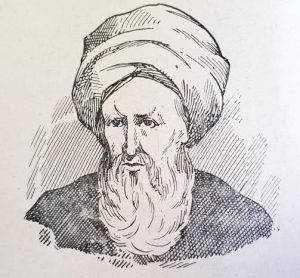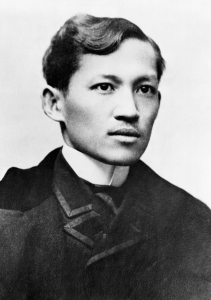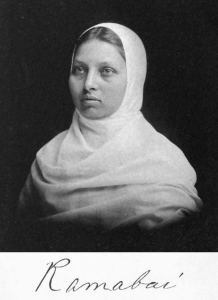2.2 History of Sociology
For millennia, people have been fascinated by the relationships between individuals and societies. Many topics studied by ancient philosophers in their desire to describe an ideal society are still studied in modern sociology, including theories of social conflict, economics, social cohesion, and power (Hannoum, 2003).
While people continue to theorize how social life works on a daily basis, sociologists refer to theory as a statement that proposes to describe and explain why facts or other social phenomena are related to each other based on observed patterns. North American and European sociologists typically point to several scholars from the 19th century as foundational to the discipline and sociological theory. These scholars include European white middle class men whose position in their societies shaped their viewpoints. Yet sociologists continue to debate who is included as a theorist and part of “classical” sociological theory (Connell 1997; Alatas and Sinha 2017; Morris 2017). In this section, we introduce some of the lesser known predecessors of classical sociologists who helped create a foundation for the discipline.
2.2.1 Precursors to Sociological Theory
Sociology has a variety of rich traditions across the world and history. Outside of what was occurring in 19th century Europe, scholars point to ideas developed by Ibn Khaldun, Jose Rizal, and Pandita Ramabai Saraswati as offering insightful applications of the sociological perspective to their societies. Khaldun predates the development of sociology in Europe, while Rizal and Saraswati were contemporaries of the classical theorists but remain largely overlooked.
2.2.1.1 Ibn Khaldun (present day Tunisia, 1332-1406)

Largely recognized as one of the originators of sociology, Khaldun studied the causes of historical events and how societies changed (figure 2.2). To account for these changes he argued that there needed to be a way to distinguish truth from falsehood. What he proposed was social science. According to Khaldun, what was crucial in understanding the rise and fall of North African states was the differences in the type of social cohesion in nomadic and sedentary societies. He argued that nomadic societies had strong social cohesion and that sedentary societies had less cohesion (Alatas 2017a).
2.2.1.2 José Rizal (Philippines, 1861-1896)

Filipino social thinker and activist Rizal wrote both fiction and non-fiction that analyzed Spanish colonialism and the possibilities of emancipation in the Philippines (figure 2.3). He explained how the Spanish colonial bureaucracy and Catholic Church justified the exploitation of the Filipino people by claiming they were “lazy” or “backwards.” Instead, based on the precolonial history, he pointed to how the Philippines were an advanced society and that it was colonization that led to the myth of laziness and any “backwardness” the society was experiencing (Alatas 2017b).
2.2.1.3 Pandita Ramabai Saraswati (India, 1858-1922)

A social reformer from India, Saraswati was known for championing oppressed and exploited Hindu women and opposing British colonial rule (figure 2.4). Mostly through the form of social commentary and auto-biography she criticized the rigid and patriarchal organization of her society. Some scholars argue that she “should be considered the first sociologist of kinship and family in India” (Sinha 2017: 255). She also provided insights about the United States based on her travels here in The Peoples of the United States (1889).
2.2.2 Europe and the Enlightenment
European social thought developed against the backdrop of the Enlightenment, a European intellectual movement that occurred during the 17th and 18th centuries, and the large societal changes occurring in Europe during the 18th and 19th centuries. During the Enlightenment there was a major reevaluation of how people thought about individuality, society, rationality, government, and religion. Rather than relying on religion and superstition to explain the social world, explanations based on science and reason gained acceptance in Europe. The ideas of Thomas Hobbes (1588–1679), John Locke (1632–1704), Charles Montesquieu (1689–1775), Jean Jacques Rousseau (1712–1831), and Georg Hegel (1770–1831) proved influential.
2.2.2.1 Industrial Revolution
Outside of this intellectual context, the economies of European countries were transitioning from those based on agriculture to those based on industrial production in factories. The Industrial Revolution was paired with the rise of capitalism within those societies. The Industrial Revolution changed what work looked like. The workers moved from working on the land to working in tightly controlled factories. The work itself was largely with machines and monotonous, often it was not well paying.
Alongside the changes in the economy, large political and geographical changes led to political revolutions that challenged the authority of kings and queens of Europe. One of the most influential was the French Revolution (1789–1799). The revolution, inspired by the values of liberty, equality, and fraternity, resulted in the overthrow and execution of King Louis XVI. It ultimately led to a series of wars across Europe and Napoleon Bonaparte as emperor. Geographically, people started concentrating in urban areas where there were more opportunities for work. Science grew and increased in prestige and some of the early sociologists in Europe sought to tie sociology to what they perceived as the “successful” sciences.
2.2.2.2 Imperialism and Colonialism
Some histories gloss over the violence committed by European countries during this period of colonization. Specifically, during this time the British, French, Beligan, American, Spanish empires, among others, engaged in colonial projects in Africa, Asia, Oceania, and Latin America. Imperialism involves a country dominating a distant territory. Colonialism entails the dominating country creating settlements in the distant territory (Said 1994). However, the boundaries between colonialism and imperialism can be blurry. Within Europe and the United States, racial hierarchies, slavery, white supremacy, colonialism, and patriarchy ran amok (Morris 2022). But most European and American social theorists of the day did not address those social dynamics. As we continue this discussion it is important to keep in mind that “sociology was formed within the culture of imperialism, and embodied an intellectual response to the colonized world” (Connell 2007:9) and to pay attention to whose voices have been included and whose have been excluded.
2.2.3 Licenses and Attributions for History of Sociology
First paragraph in “Precursors to Sociology” is from “1.2 The History of Sociology” by Tonja R. Conerly, Kathleen Holmes, Asha Lal Tamang in Openstax Sociology 3e, which is licensed under CC BY 4.0. Access for free at https://openstax.org/books/introduction-sociology-3e/pages/1-introduction.
Theory definition from the Open Education Sociology Dictionary is licensed under CC BY-SA 4.0.
All other content in this section is original content by Matthew Gougherty and licensed under CC BY-SA 4.0.
Figures
Figure 2.2. Sketch of Ibn Khaldun by unknown, probably Muhammad Atiyya Al-Ibrashi (1897–1981). Public domain, via Wikimedia Commons.
Figure 2.3. Jose Rizal. Public Domain, via Wikimedia Commons.
Figure 2.4. Portrait of Pandita Ramabai Sarasvati 1858-1922, frontispiece from book.
